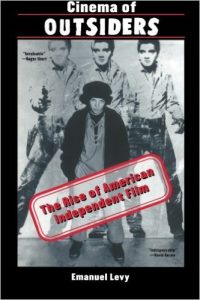It’s actually Netflix that Neon counts as their “biggest competitor” for acquisition titles.
Neon founder and CEO Tom Quinn said that his studio tried to acquire recent Netflix hits such as Richard Linklater’s “Hit Man,” Todd Haynes’ “May December,” and Chloe Domont’s Sundance breakout “Fair Play.”
My Indie Cinema Book
In turn, Netflix previously tried to lock down “I, Tonya” and “Portrait of a Lady on Fire,” which were both award-winning Neon releases.
There was one recent film that A24 wooed away from Neon: Brady Corbet’s Oscar-winning “The Brutalist.” While “The Brutalist” won Best Actor for Adrien Brody (and Best Original Score for Daniel Blumberg and Best Cinematography for Lol Crawley), Neon’s “Anora” took the top title of Best Picture, along with Best Director, Best Original Screenplay, and Best Editing for Sean Baker, and Best Actress for Mikey Madison.
Quinn deemed “The Brutalist” a “stone cold masterpiece.” But writer/director Corbet opted to go with A24 in part because the studio would theatrically exhibit the film in 70 mm, something that Neon was unsure about at Neon.
“I just thought, ‘Brady, you’ve spent eight years making this. Let’s make sure you have enough time to build every theater 70 millimeter prints,'” Quinn said. “‘Let’s not sacrifice anything. I feel that we’re going to be rushed.’ As much as it hurt to say goodbye, I think Brady made the right decision. He wanted to go this year.”
Quinn: “We follow the beat of our own drum. The idea of pandering to the campaign as opposed to being who you are as a film is a big, stark difference. We never play to the campaign. We always play to the film, filmmaker and audience – in that order.
We’re in a better position to be very intentional about who we want to work with. We have really clear idea of who we are and what we want to do in an industry that can be flawed and focused on the trend of the day, and approaches every film as one size fits all.”
“We pick up movies that they walked away from, and vice versa, but we’re not the same,” Quinn said in 2024. “Here’s a stark difference: In their first seven years, they released three foreign-language films and three documentaries. We’ve released 64 – 32 foreign-language films and 32 documentaries. We are very different, but are very much on the same trajectory. They won best picture, and we won best picture. But I don’t understand their business and their valuations. I’m sure most of the industry doesn’t either, but more power to them.”











